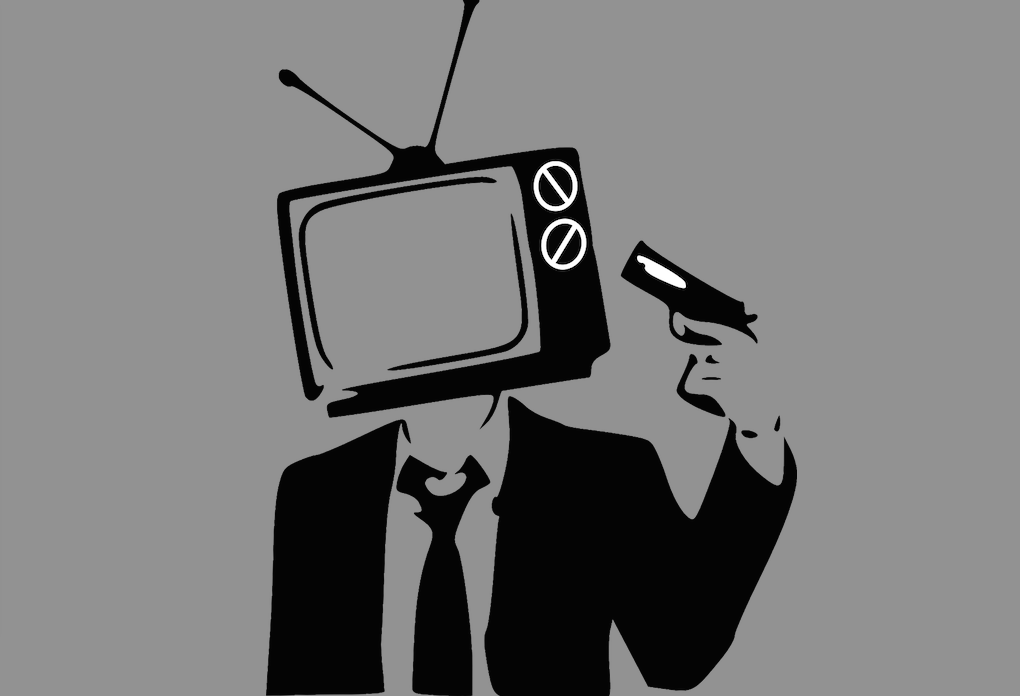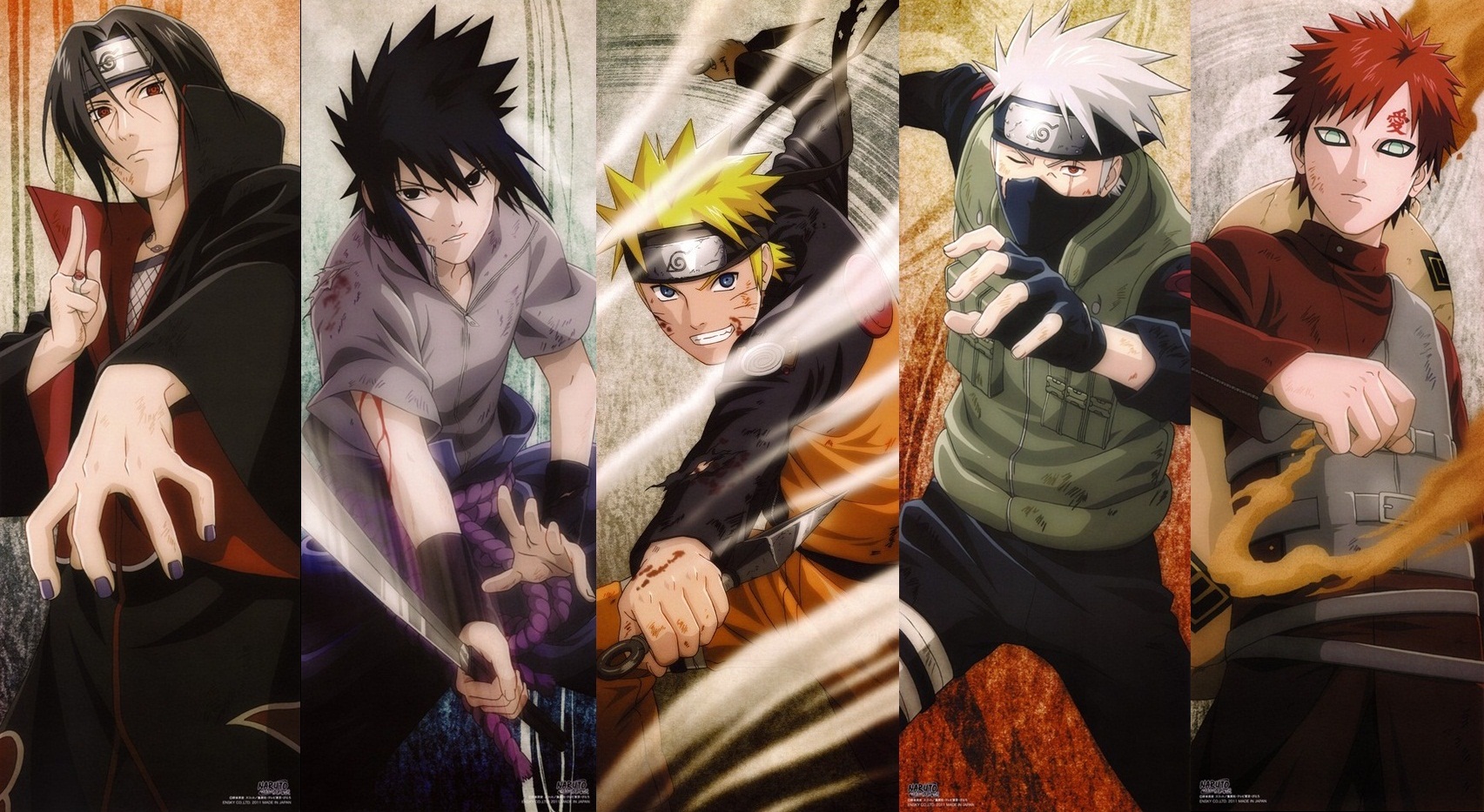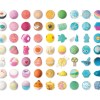
Foreigners living in Japan, our own editor included, often give Japanese TV a hard time. For many, it’s either too weird, too predictable or too obnoxious. If it really is so bad though, surely shows like Iron Chef and Ninja Warrior (Sasuke) would never have been introduced in the US? Nor would America have created the show I Survived a Japanese Game Show. So if foreign stations are taking cues from the Japanese TV shows, the originals must have some merit, right?
One Reddit user finally asked the big question, “Japanese television. Is it really so terrible?” As you’d expect, the responses poured in, both in favor of and adamantly against it. One user proclaimed that Japan only has three kinds of programs, “Shows about celebrities. Shows about food. Shows about celebrities eating food.” But like TV in any country, there are actually a lot of different kinds of shows, so it’s probably worth a moment to take a walk through some of the programming options.
The easiest place to start is with anime. Let’s be honest, a lot of people who like Japan, started out by watching anime. It’s like a gateway drug into Japanese culture. In general, foreigners’ response to TV anime is positive, although some people like to knock the fact that some long-running shows (hundreds of episodes long) have a lot of unnecessary “filler” episodes that are unrelated to the overall plot and are too short at 25 minutes— even shorter when half of the time slot is filled reviewing the previous episode. Others complain not enough anime is shown in prime-time slots.
▼ One of Japan’s most successful TV shows, Naruto.
Next we move into dramas. A lot of foreigners give Japanese (and Korean) dramas a bad rap, likening them to terrible American soap operas. It’s true that some can definitely take you on unnecessary emotional roller coasters and may contain a little too much overacting. On the other hand, dramas tend to only span 8-12 episodes, then occasionally a second season if they do really well. The short airing is actually appealing to many foreign viewers, because the dramas get replaced by “fresh dramas,” so things don’t get too monotonous. There is also a wide range of dramas, from teen RomComs to serious ones targeting adults or even action-packed shows. Another big difference is that Japanese dramas often star big names— accomplished actors, musicians or idols.
The dramas can be really predictable and a bit bland, though, turning many viewers off. Some Reddit viewers see dramas as political tools or Big Brother-esque moral propaganda:
“Whatever the Japanese government wants their people to believe, it shoves it through NHK.”
“Very frequently [drama’s contain] very heavy-handed moralizing.”
“I’m rather disturbed at how pro-status quo everything is.”
▼ The drama GTO was so popular in the ’90s, they recently remade it.
[tweet https://twitter.com/EXILE_contact/status/480552473283665920 align=center ]
Comedy shows are next up. Japanese comedy shows tend be more on the slapstick side of humor, so if you don’t like that, you probably won’t like them. The Japanese oddity and silliness comes in big time here, while a lot of jokes also have deep ties into the culture, so if you are still new to Japan, there’s a chance you won’t get the jokes even if you understand the language. Comedians in Japan tend to work in pairs or threes, with skits lasting only a few minutes. There are also a variety of prank shows, which are often pretty well done and very amusing.
▼Japan loves comedians. Here, a pair by the name of “Audrey,” performs on the comedy show entaa no kamisama (God of Entertainment).
▼ Less talked about are the documentaries. While they are often over dramatic and have terrible reenactments, they can be informative and cover a variety of topics from travel to disease.
Moving on, we have the Variety Shows. These are the shows that foreigners like to complain about the most. Variety shows often have an “audience” of talento, B-list stars or quirky people only popular because of their presence on these shows. One Reddit user aptly equated Japanese talento to America’s Regis Philbin, as opposed to someone like Kim Kardashian, because “talento don’t take themselves too seriously and are usually able to joke around… Kim K wouldn’t do 90% of the stuff talento go through.”
Being in the category “variety,” the shows cover an array of topics from travel in different countries to karaoke contests to magicians. The catch, though, is that the TV audience is not only watching the show about the topic of the day, but they also see the reactions of the talento in a picture-in-picture-esque bubble somewhere on the screen. Most people don’t have problems with this, but it’s whenever something relatively surprising or interesting happens, the talento say “Eeeeh!” in almost perfect unison. Many Reddit users find this particularly annoying. Although one user said that they enjoy Japanese TV in general, “the only thing that really bothers me is the excessive ‘Eeeeh?’-ing.”
▼ A popular variety show is Downtown no Gaki no Tsukai.
And then there is the food “problem.” A lot of TV shows in Japan focus on food, whether it be food from home, abroad or new concoctions. This might not sound so odd at first, but the number of these shows is startling; as one Reddit user put it, “Not all TV is talento eating food. Most of it, but not all.” The biggest issue the foreign Japanese TV-watching community has with the food shows is the predictable reaction by the talento: “Oishii!” or “Umai!” (Delicious!). The review of the food often stops there though and apparently EVERYTHING is delicious. Not merely tasty, you understand, but delicious to the point that the presenter looks like they’re about to burst into tears after inserting it into their mouth. It’s almost as if these people have lived their lives locked in a cupboard living on a diet of strips of newspaper and thimbles of tap water, making every dish they encounter during the shows’ recording a culinary triumph. As another Japan subreddit user commented, this wouldn’t be such a problem if the presenters occasionally described the food’s taste rather than just saying how “delicious” it was. In the words of another TV viewer, “you can only watch someone eat so many times before it becomes soul-crushingly dull.”
▼ Talento Imoto thinks the ramen is “umai~!”
Some of the variety shows feature games shows, which can either be active games, like the ones that inspired that American TV show, or they can be quiz games. The quiz games are usually quite educational and fun to watch, covering everything from history to kanji. Again, the participants in these are the talento.
▼ Japan comes up with some wacky game show ideas, like “Human Tetris.”
Some people may not categorize commercials as Japanese TV, but I think that’s a mistake. Japanese commercials can be hilarious, often because they are so weird that you can’t help but laugh. Japan has realized that the weirder the commercial, the more memorable, so they are crazy on purpose, often featuring dancing actors, creepy animation, talking animals and catchy tunes. One Reddit user may even like the commercials more than regular programing, saying, “I usually take my bathroom breaks during the show and make sure I’m back before the commercials.”
▼ This Nissin Cup Noodle ad is definitely on the odd side.
Japanese TV can be bad, but it can be good, much like TV everywhere else in the world. Personally, I enjoy it and have learned a lot from Japanese TV. Another Reddit summed it up nicely:
“I somewhat enjoy Japanese TV because… [it] gives me insight to how Japanese people see the world around them. Even if what’s on that random drama isn’t representative of the average person’s thoughts, it shows me what is being presented as normal, or what is ideal for the average Japanese person.”
In the end, it all comes down to your sense of humor, interest in Japanese culture and tolerance of “oishii,” “umai,” and “eeeeh?!”
If you are familiar with Japanese TV, what are your thoughts? For? Against? Indifferent?



 The key to loving Japanese TV as a foreigner
The key to loving Japanese TV as a foreigner Takoyaki store in Osaka becomes a hot topic on Reddit, but is it any good?
Takoyaki store in Osaka becomes a hot topic on Reddit, but is it any good? This could be our first look at Nintendo’s next-generation gaming controller
This could be our first look at Nintendo’s next-generation gaming controller What’s wrong with English education in Japan? Pull up a chair…
What’s wrong with English education in Japan? Pull up a chair… Japanese drama set in New York is your next binge-watch series
Japanese drama set in New York is your next binge-watch series Foreigner’s request for help in Tokyo makes us sad for the state of society
Foreigner’s request for help in Tokyo makes us sad for the state of society Japanese-style accommodation at the new Premium Dormy Inn hotel in Asakusa will blow your mind
Japanese-style accommodation at the new Premium Dormy Inn hotel in Asakusa will blow your mind Seaside scenery, history, and so many desserts on Yokohama’s Akai Kutsu【Japan Loop Buses】
Seaside scenery, history, and so many desserts on Yokohama’s Akai Kutsu【Japan Loop Buses】 Mikado Coffee is a 76-year-old coffee chain with a major celebrity connection
Mikado Coffee is a 76-year-old coffee chain with a major celebrity connection Japan’s summertime towelket pillowcases are even better with the addition of Ghibli stars【Photos】
Japan’s summertime towelket pillowcases are even better with the addition of Ghibli stars【Photos】 Red light district sushi restaurant in Tokyo shows us just how wrong we were about it
Red light district sushi restaurant in Tokyo shows us just how wrong we were about it Japanese city loses residents’ personal data, which was on paper being transported on a windy day
Japanese city loses residents’ personal data, which was on paper being transported on a windy day Should you add tartar sauce to Japanese curry rice? CoCo Ichi makes diners an unusual offer
Should you add tartar sauce to Japanese curry rice? CoCo Ichi makes diners an unusual offer Hey, Japanese taxi driver! Take us to your favorite restaurant in Tsuruga City!
Hey, Japanese taxi driver! Take us to your favorite restaurant in Tsuruga City! Lush Japan-exclusive bath bombs from Harajuku store coming to stores worldwide this spring
Lush Japan-exclusive bath bombs from Harajuku store coming to stores worldwide this spring McDonald’s new Happy Meals offer up cute and practical Sanrio lifestyle goods
McDonald’s new Happy Meals offer up cute and practical Sanrio lifestyle goods Japanese ramen restaurants under pressure from new yen banknotes
Japanese ramen restaurants under pressure from new yen banknotes French Fries Bread in Tokyo’s Shibuya becomes a hit on social media
French Fries Bread in Tokyo’s Shibuya becomes a hit on social media New private rooms on Tokaido Shinkansen change the way we travel from Tokyo to Kyoto
New private rooms on Tokaido Shinkansen change the way we travel from Tokyo to Kyoto Tokyo Tsukiji fish market site to be redeveloped with 50,000-seat stadium, hotel, shopping center
Tokyo Tsukiji fish market site to be redeveloped with 50,000-seat stadium, hotel, shopping center Beautiful Ghibli sealing wax kits let you create accessories and elegant letter decorations【Pics】
Beautiful Ghibli sealing wax kits let you create accessories and elegant letter decorations【Pics】 Secret Kitchen bento serves Japanese flowers, birds, wind and moon in a box, but is it worth it?
Secret Kitchen bento serves Japanese flowers, birds, wind and moon in a box, but is it worth it? New definition of “Japanese whiskey” goes into effect to prevent fakes from fooling overseas buyers
New definition of “Japanese whiskey” goes into effect to prevent fakes from fooling overseas buyers Our Japanese reporter visits Costco in the U.S., finds super American and very Japanese things
Our Japanese reporter visits Costco in the U.S., finds super American and very Japanese things Studio Ghibli releases Kiki’s Delivery Service chocolate cake pouches in Japan
Studio Ghibli releases Kiki’s Delivery Service chocolate cake pouches in Japan All-you-can-drink Starbucks and amazing views part of Tokyo’s new 170 meter-high sky lounge
All-you-can-drink Starbucks and amazing views part of Tokyo’s new 170 meter-high sky lounge More foreign tourists than ever before in history visited Japan last month
More foreign tourists than ever before in history visited Japan last month New Pokémon cakes let you eat your way through Pikachu and all the Eevee evolutions
New Pokémon cakes let you eat your way through Pikachu and all the Eevee evolutions Disney princesses get official manga makeovers for Manga Princess Cafe opening in Tokyo
Disney princesses get official manga makeovers for Manga Princess Cafe opening in Tokyo Sales of Japan’s most convenient train ticket/shopping payment cards suspended indefinitely
Sales of Japan’s most convenient train ticket/shopping payment cards suspended indefinitely Sold-out Studio Ghibli desktop humidifiers are back so Totoro can help you through the dry season
Sold-out Studio Ghibli desktop humidifiers are back so Totoro can help you through the dry season Japanese government to make first change to romanization spelling rules since the 1950s
Japanese government to make first change to romanization spelling rules since the 1950s Ghibli founders Toshio Suzuki and Hayao Miyazaki contribute to Japanese whisky Totoro label design
Ghibli founders Toshio Suzuki and Hayao Miyazaki contribute to Japanese whisky Totoro label design Doraemon found buried at sea as scene from 1993 anime becomes real life【Photos】
Doraemon found buried at sea as scene from 1993 anime becomes real life【Photos】 Tokyo’s most famous Starbucks is closed
Tokyo’s most famous Starbucks is closed One Piece characters’ nationalities revealed, but fans have mixed opinions
One Piece characters’ nationalities revealed, but fans have mixed opinions We asked a Uniqlo employee what four things we should buy and their suggestions didn’t disappoint
We asked a Uniqlo employee what four things we should buy and their suggestions didn’t disappoint Live with a 3-D virtual servant inside your home with Gatebox, now available for pre-order【Video】
Live with a 3-D virtual servant inside your home with Gatebox, now available for pre-order【Video】 The top 10 famous men that Japanese women wish would make love to them【Survey】
The top 10 famous men that Japanese women wish would make love to them【Survey】 The 10 best anime about idols, as chosen by the Internet masses
The 10 best anime about idols, as chosen by the Internet masses Japanese actor’s unfortunate choice of t-shirt has net users amused, doubting his English ability
Japanese actor’s unfortunate choice of t-shirt has net users amused, doubting his English ability 8 Japan-related events to look forward to in 2016!
8 Japan-related events to look forward to in 2016! Canadian YouTuber explains why she quit working on Japanese TV
Canadian YouTuber explains why she quit working on Japanese TV Artist who knows nothing about Pokémon draws pictures of them based only on names【Pics】
Artist who knows nothing about Pokémon draws pictures of them based only on names【Pics】 English name in Zelda: BotW credits shows happy ending for one student’s 10 year Japanese journey
English name in Zelda: BotW credits shows happy ending for one student’s 10 year Japanese journey Japanese actress Mina Fujii is the most searched keyword in Korea and it’s not hard to see why
Japanese actress Mina Fujii is the most searched keyword in Korea and it’s not hard to see why Last One Standing brings an entirely new kind of Japanese crime comedy to Netflix
Last One Standing brings an entirely new kind of Japanese crime comedy to Netflix Japanese train history plays out like a sliding doors rom com in 100 Years Train ad 【Video】
Japanese train history plays out like a sliding doors rom com in 100 Years Train ad 【Video】 New plus-sized idol group hopes to broaden the image of beauty in Japan 【Video】
New plus-sized idol group hopes to broaden the image of beauty in Japan 【Video】 Japanese Twitter users respond: “What do you do when a friend criticizes anime you like?”
Japanese Twitter users respond: “What do you do when a friend criticizes anime you like?” North Korean missile launches may cost Japanese broadcasters “billions of yen”
North Korean missile launches may cost Japanese broadcasters “billions of yen” High school students’ teacup ride blows up online, looks more fun than the Disneyland one
High school students’ teacup ride blows up online, looks more fun than the Disneyland one Video highlights some of the disturbing Pretty Cure live show bloopers
Video highlights some of the disturbing Pretty Cure live show bloopers
Leave a Reply